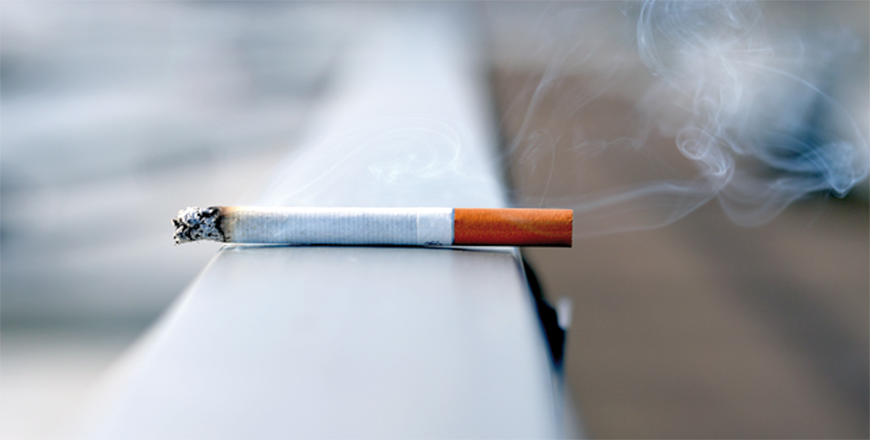AMMAN — Health experts are urging Jordanians to cease tobacco consumption and avoid switching to locally produced alternatives as boycotts gain momentum.
Local tobacco product retailers and distributors have reported a modest decline in tobacco sales for international companies that have announced their support for the Israeli occupation.
Amid the ongoing aggression in Gaza, Jordanian consumers have launched boycotts that include international products supporting the occupation. Many international companies are facing stock losses and cash flow shortages due to this ongoing boycott.
Mustafa Agha, the owner of a tobacco-related distribution company, told The Jordan Times that sales of international brands have been “slightly” affected by the campaign.
“Tobacco is considered a basic necessity for many Jordanians,” Agha said.“Some are unable to switch to local brands, while others are willing to compromise on their favourite brands in support of their values.”
Muhammad Anees Abdallah, the secretary-general of the Jordanian Society for Anti-Smoking, told The Jordan Times that a majority of Jordanians are highly vulnerable to smoking.
“Over 66 percent of Jordanian males smoke,” Abdallah said.
Abdallah highlighted that Jordanians spend JD 1.6 billion annually on cigarettes.
“This figure doesn’t include Jordanians spending on shisha, vapeand electronic cigarettes,” Abdallah said.
Jordanian households spend JD73.6 per month on tobacco-related products. In comparison, the average household’s monthly expenditure on fruits does not exceed JD27, while spending on dairy products and eggs stands at JD38 and meat and poultry at JD50, according to a World Health Organisation report.
Amro Ayyad is the owner of a tobacco-related products shop.
“The decline in sales is noticeable,” Ayyad said. “However, I believe it’s less significant than the decline seen in sales of other international products.”
Ayyad said that he does not offer any tobacco-related products that support the occupation, despite consumer inquiries.
Abdallah emphasised that tobacco consumers are encouraged to redirect the funds from boycotting tobacco towards providing relief for the people of Gaza.
“Jordanians should quit smoking for their own health, to save money, and uphold their values,” Abdallah said.
“There are clinics specialised in quitting smoking available for free in all Jordanian governorates,” Abdallah said. “Jordanians can donate their monthly spending on tobacco to provide relief for the people of Gaza.”
Abdel Rahman Shaher, a respiratory doctor, told The Jordan Times that this is a golden opportunity for Jordanians to protect their health and their values.
“Quitting smoking has numerous health benefits, including reduced risk of heart disease, lung cancer, and respiratory illnesses,” Shaher said. “It’s a win-win situation for both individuals and the larger community.”
Shaher stressed that the campaign against tobacco consumption is not just about boycotting, but about taking responsibility for one’s health and making a positive impact on society.
Jordanians have the chance to not only show their solidarity with Gaza, but also prioritise their own well-being and contribute to a healthier, smoke-free future, Shaher said.
